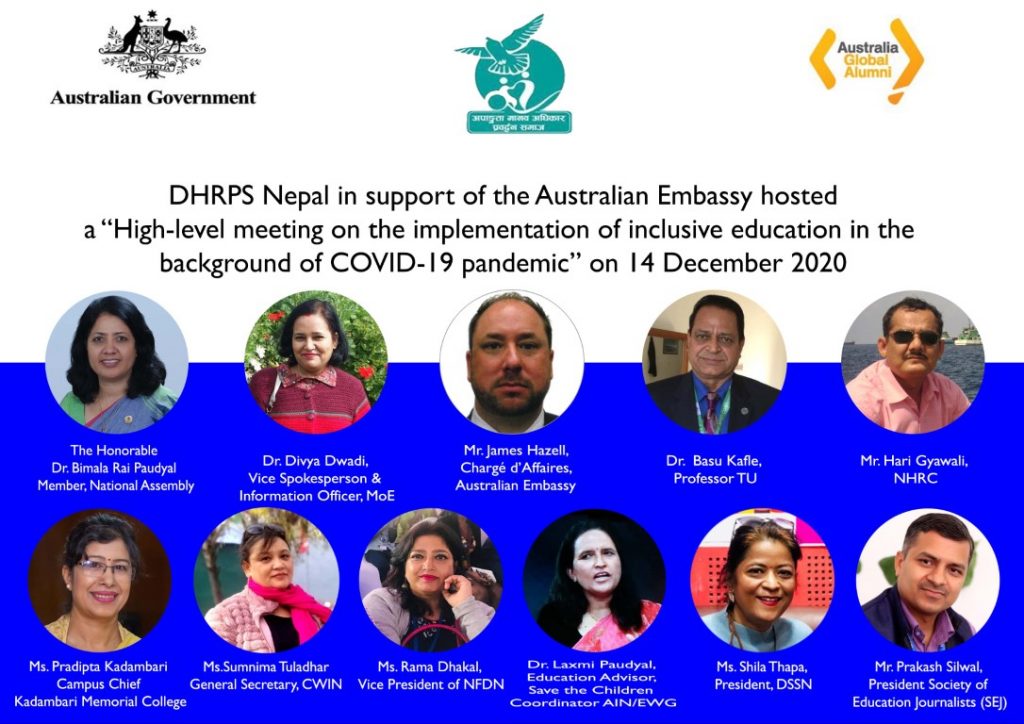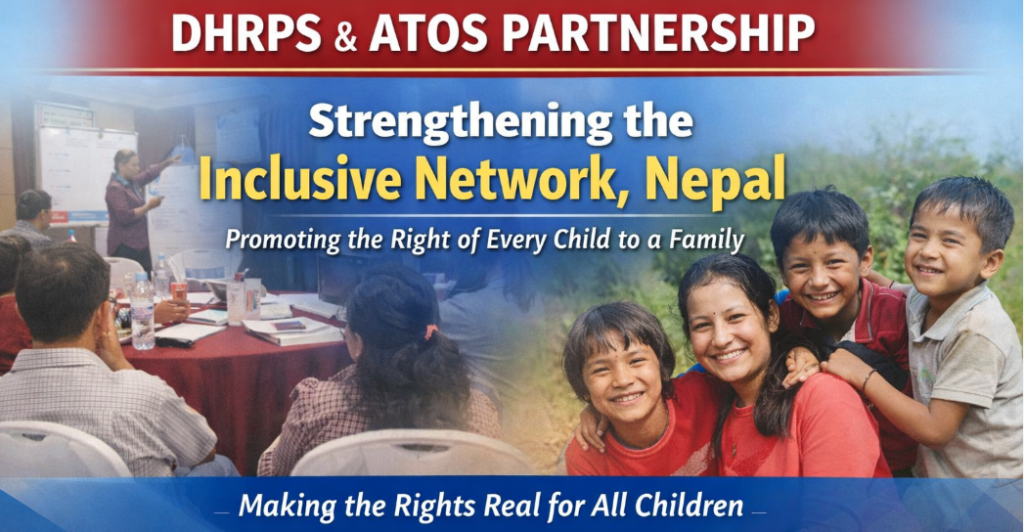COVID -19 has thrown up sudden and unforeseen challenges to all. It has affected everyone, but persons with disabilities have been disproportionately affected. The education sector was one of the hardest hit by the pandemic as most institutions were shut down for the past 8 months. The paradigm has shifted to online and virtual learning systems, which are not affordable, available, and accessible to all. Children with disabilities were particularly left behind, and their learning has been badly hampered. Students staying at hostels are forced to return home, while most of them who used to go to schools are now curtailed from their right to education.
To fully assess the situation of access to education of children with disabilities during the pandemic, an initiative was undertaken by the Disability Human Rights Promotion Society (DHRPS). The Australian Embassy in Nepal supported the project. This project’s main objective was to develop a position paper and checklist/indicators for inclusive education.
DHRPS, in partnership with the Australian Embassy, organized in-depth virtual consultations in all seven provinces of Nepal. It was instrumental in gathering ideas regarding the issues and challenges children with disabilities face in their access to education due to the pandemic. The meeting participants were DPO leaders, parents of children with disabilities, teachers, and government officials. Before that, the preparatory meetings were organized.
Post consultations in the seven provinces, a sharing meeting was organized among government officials, disability rights experts, and academicians. The format for the position paper and checklist for inclusive education was discussed in the program among experts. Various feedbacks were collected and incorporated.
Then, on 14 December 2020, a high-level consultation program was organized to discuss the position of the implementation status of inclusive education in Nepal in the COVID 19 pandemic context. The program’s chief guests were Honorable Bimala Rai, Member of the National Assembly, and Mr. James Hazell, Chargé d’Affaires, a.i. of the Australian Embassy.
The program drew meaningful participation in a highly interactive way, resulting in constructive feedback and suggestions to the position paper and gathered commitments for improvement.
After incorporating suggestions provided, the position paper will be finalized and shared among stakeholders to accelerate and gather momentum to promote and ensure access to education for children with disabilities now and in post-COVID – 19 pandemic situations.
Lastly, the DHRPS team would like to express its gratitude to the Australian government for support in promoting access to education for children with disabilities in Nepal. The team would also like to express a heartfelt thanks to the organizations and individuals who participated and contributed.



